No parent like the sight of their baby coming down with fever. But most parents have to deal with fever in the baby at some point, and in some cases quite often. Season changes, the onset of monsoon, outbreak of infections may bring in fever along with infections. This post is about how to manage a fever in a baby.
Do not fear fever in kids
A baby’s immune system builds as he grows old. Usually, until the age of 5-6, kids often fall sick. Babies easily contact viral, bacterial or parasitic infections due to their weaker immune system. Many times these infections present themselves with fever and other physical symptoms.
Please do not panic when your child has a fever. Remember the following about fever in kids:
- Usually, fever is a sign of body fighting an infection
- Fever is the body’s natural response to an illness and often not a cause for concern
- Treatment is not always recommended for fever
- Fever is a symptom of illness and not a disease
- Fever is rarely a single symptom of underlying infection/illness
- Underlying infection/illness causing the fever should be diagnosed
- Non-infectious diseases can also cause fever
Fever manifest with symptoms of sickness, e.g. viral infection may manifest with a runny nose, sore throat, cough or fever. Your doctor may not treat fever based on baby’s physical symptoms or the cause of the fever. But it is essential to diagnose the underlying illness/infection which is causing the fever(and treat the illness as per doctor’s recommendation).
Generally (unless infant is less than two months old), unless body temperature shoots to 104 degrees Fahrenheit or higher, fever is not considered a medical emergency.
Fever in the baby
When a person’s body temperature rises above the normal range, he has fever [1]. “Normal range” of body temperature varies based on various factors like gender, age, activity level, environmental factors etc.. Please follow your’s paediatrician’s recommendation for the body temperature that qualifies as fever.
How to measure a baby’s body temperature
There are different parts of the body where a baby’s body temperature can be measured to determine if the baby has a fever. They are the temperature in the:
- Rectal area/anus
- Mouth
- Armpit
- Ear
Based on the way body temperature is measured, the range of normal temperature will differ. Accordingly, the threshold for the fever will change. Please confirm with your paediatrician how to measure body temperature for determining fever. That will avoid ambiguity in the temperature that qualifies as fever.
Note: Based on how you choose to measure body temperature, use an appropriate thermometer. E.g. ear thermometer may not be useful to measure armpit temperature.
Managing fever in the baby
Paediatricians usually define high grade and low-grade fever range, based on the baby’s age, medical conditions. etc.. If your paediatrician describes such range, he may prescribe different ways to manage fever in each case. Follow your paediatrician’s instructions to tackle low-grade or high-grade fever.
Paediatricians may not prescribe any medication to treat fever, especially low-grade fever. Remember, fever is the body’s natural response when fighting an infection. Fever does not always require treatment.
Medicine for fever management
Doctors prescribe Antipyretics medicines (e.g. paracetamol, Ibuprofen, etc.) for fever management. They help to reduce fever. Fever can also bring with it inflammation and pain. The commonly prescribed antipyretics also serve the additional purpose like provide pain relief and/or are anti-inflammatory.
Administer fever management medicines only as per doctor’s prescription. A doctor prescribes dosage based on age, weight, the strength of medicine etc.. Under-dosage will not provide your child with adequate pain relief and may not be effective in reducing fever. Follow the instructions for the maximum dosage of fever medication to be administered in 24 hours. Or the minimum prescribed time gap between two doses. Accidental or persistent overdosage can cause complications and in some cases may prove fatal.
Home remedy for fever management
A home remedy in case of high fever is a lukewarm water bath or sponging. It is often prescribed by doctors too.
For sponging following the following steps:
- Use water slightly above room temperature (lukewarm water)
- Dip a soft absorbing cloth like a towel, napkin. etc.. in water and squeeze excess water
- Gently wipe baby’s body
- Or fold the cloth and put on baby’s forehead, palms, stomach, feet, underarms
- Repeat if required
If the baby does not co-operate to sponging, give a lukewarm water bath. That can also help to bring down the fever faster. Keep in mind the following things when giving lukewarm water bath:
- Use running tap water or lukewarm water slightly above room temperature
- Bathe your baby from the face to legs
- Avoid pouring water on the head
- Keep a gap of 45-60 minutes between baths or as recommended by your doctor
Note: Do lukewarm water bath or sponging along with fever medication. In case you do not have fever medicine handy, the bath/sponging can be a temporary way (first-aid) to manage fever. In such a case, consult a doctor at the earliest. Always follow your doctor’s recommendation for fever management. Do not depend only on the home remedy to manage fever.
Be prepared to manage fever in the baby
Fever usually indicates an underlying infection. Fever and the infection can cause discomfort. This can compound the worries of the parents. Kids are more susceptible to infections due to their weaker immune system. Prepare yourself in advance to manage common infections and the associated fever.
Next time you visit your paediatrician, do not hesitate to discuss the following:
- Understand when fever is a medical emergency
- Plan for managing fever – medicine & home remedy for high vs low-grade fever
- Recommendation on how to measure body temperature
- Updated prescription for fever medicine in each visit
- The Validity of the prescribed dosage (based on baby’s age, weight gain etc.)
- Alternate medication if prescribed medication not available
Note: Medicines & dosage are prescribed based on content, the strength of formulation, age, weight etc.. Consult your doctor for dosage when opting for alternative medicine.
Following points may help you to be prepared to manage fever and avoid panic when your child has fever:
- Have fever management medicine at your disposal especially while travelling
- Ensure you have a working thermometer in your medical kit
Tips for managing fever in unexpected situations
It is possible that your kid has fever, and you are not sure about the right fever medicine or the correct dosage. Or you may not have access to fever medication. Following tips may help, especially if your child has a high-grade fever:
- Contact your doctor or nearest Emergency ward for fever medicine or dosage
- If no medicine or medical help available, give lukewarm water bath/sponging
- Note: Do Lukewarm water bath/sponging along with fever medication or as a temporary measure to bring down fever till medical help is available
If your child is unusually irritable, lethargic, or showing severe discomfort along with fever, seek immediate medical help.
Fever in the baby can cause temporary loss of appetite
Fever and the underlying infection, causes the child’s appetite to dip in many cases. That is normal. When the child has a fever, keep him well hydrated. If the baby is on EBF, keep feeding regularly. If the child has started solids, offer fluids to maintain hydration.
Reduced appetite may continue for a few days after recovery. The appetite generally improves within 8-10 days after fever and infection have subsided.
In conclusion
Fever is the body’s natural response to fighting an infection/illness. Fever is not a bad sign, yet a lot of parents panic when their child has a fever. Please remember the following about the fever in a baby:
- Usually, fever is a sign that the body is fighting a viral/bacterial/ parasitic infection
- Fever does not always require treatment
- A baby’s immune system is work in progress; hence infections and fever are common
- Have a plan for fever management in consultation with your paediatrician
- Have thermometer and fever medication handy in your medical kit
- Administer fever medication as per doctor’s prescription only
- Keep your child well hydrated when having a fever
- A child may have temporary appetite loss during illness or few days post recovery
Hope you find this post useful to manage fever in your baby!

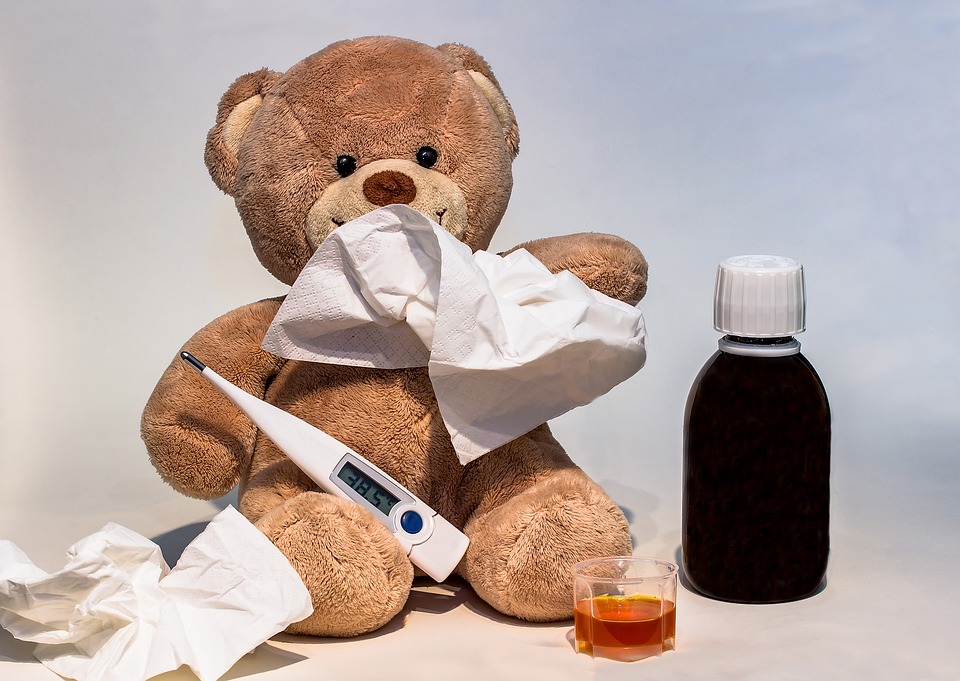
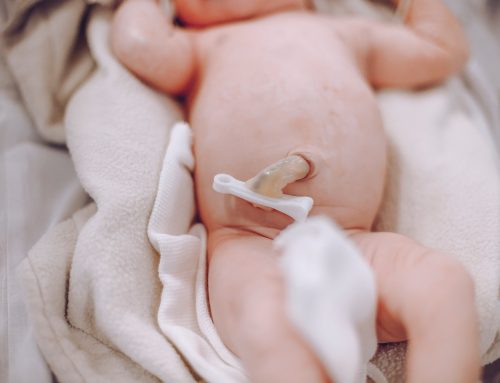
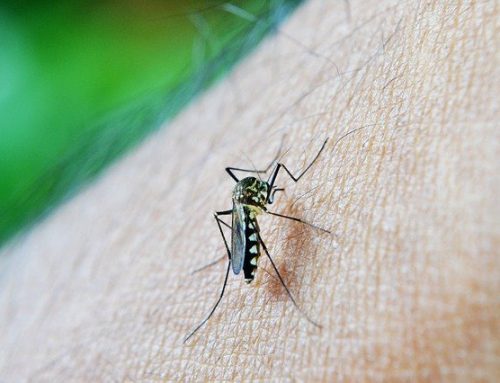
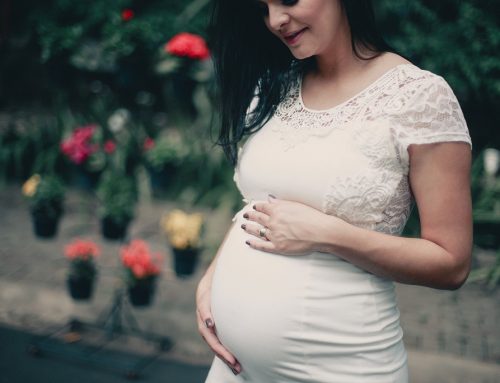
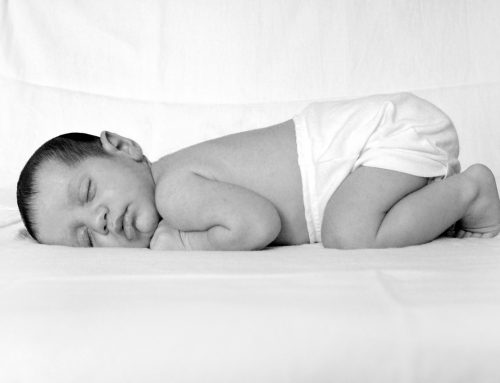
Magnificent site. Loads of helpful details in this article. I will be transmitting them to several buddies ans likewise discussing within delightful emergency medicine. And naturally, many thanks as part of your efforts!